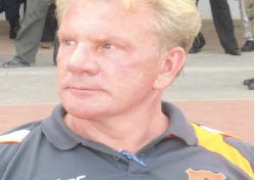Organised by WAIFEM, the main objectives of the course is to train the participants on how to build and use CGE modeling to undertake policy impact assessment and scenario analysis, and to apply it to issues related to Economic Partnership Agreements (EPAs).
The course is, among others, expected to introduce all the fundamental tools for constructing and implementing multi-sector applied general equilibrium models for policy analysis.
Dr. Johnson Asiama, Director of Macroeconomic Management Department of WAIFEM, who spoke on behalf of Professor Akpan Ekpo, Director General of WAIFEM, said CGE models are generally recognized as the best tools to analyze the micro-economic impacts of macro-economic policies and, more particularly, impacts of trade policies on poverty.
These models, he added, are widely used for policy-analysis in many countries because they provide both an economy-wide assessment of policy, and a framework in which the workings of policies can be more easily understood.
“With many countries battling with modeling the labour market, as well as environmental externalities, CGE models are perceived to provide the solution,” he said.
According to him, the perceived complexity of this analytical approach, and the concentration of capacity within a small number of academic or related institutions have generally led policy-makers, analysts and other researchers to avoid directly using CGE models in their analysis or decision-making.
In his keynote address, Amadou Colley, Governor of the Central Bank of the Gambia, said computable general equilibrium model is one of the most rigorous, cutting-edge quantitative methods to evaluate the impact of economic and policy shocks, particularly policy reforms in the economy as a whole.
“It is by its nature significantly useful to policy design, and has been in quite a wide range of activities including structural adjustment policies, international trade, public finance, agriculture, income distribution, and energy and environmental policy,” Colley added.
According to him, the course will offer the participants a great opportunity to adequately understand, build and use CGE modeling to further the greater objective of sub-regional economic integration by undertaking policy impact assessment and scenario analysis of the Economic Partnership Agreements.
Other speakers at the opening ceremony included Dr. Felix F. N’Zue from the ECOWAS Commission, Professor Ali Bayar, president of ECOMOD and Dr. Udoma Afangideh, senior program manager, macroeconomic management department at WAIFEM.


